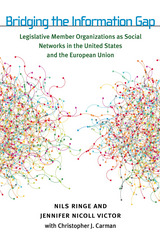9 start with B start with B


Patrick Ireland argues that it is incorrect blithely to anticipate unavoidable conflict between Muslim immigrants and European host societies. Noting similarities in the structure of the welfare states in Germany, the Netherlands, and Belgium—as well as in their respective North African and Turkish immigrant communities—he compares national- and city-level developments to show how approaches toward immigrant settlement have diverged widely and evolved over time.
Becoming Europe demonstrates how policymakers have worked hard to balance immigrants’ claims to distinct traditions with demands for equal treatment. Ultimately, it reveals a picture of people learning by doing in the day-to-day activities that shape how communities come together and break apart.

Based on more than 150 interviews with Greek and Turkish elites, Gürsoy offers a detailed analysis of both countries from the interwar period to recent regime crises. She argues that officers, politicians, and businesspeople prefer democracy, authoritarianism, or short-lived coups depending on the degree of threat they perceive to their interests from each other and the lower classes. The power of elites relative to the opposition, determined in part by the coalitions they establish with each other, affects the success of military interventions and the consolidation of regimes.
With historical and theoretical depth, Between Military Rule and Democracy will interest students of regime change and civil-military relations in Greece, Turkey, Thailand, and Egypt, as well as in countries facing similar challenges to democratization.

Black Wave illuminates two critical factors that had a direct influence on why survival rates varied so much across the Tōhoku region following the 3/11 disasters and why the rebuilding process has also not moved in lockstep across the region. Individuals and communities with stronger networks and better governance, Daniel P. Aldrich shows, had higher survival rates and accelerated recoveries. Less-connected communities with fewer such ties faced harder recovery processes and lower survival rates. Beyond the individual and neighborhood levels of survival and recovery, the rebuilding process has varied greatly, as some towns and cities have sought to work independently on rebuilding plans, ignoring recommendations from the national government and moving quickly to institute their own visions, while others have followed the guidelines offered by Tokyo-based bureaucrats for economic development and rebuilding.



Legislative member organizations (LMOs)—such as caucuses in the U.S. Congress and intergroups in the European Parliament—exist in lawmaking bodies around the world. Unlike parties and committees, LMOs play no obvious, predefined role in the legislative process. They provide legislators with opportunities to establish social networks with colleagues who share common interests. In turn, such networks offer valuable opportunities for the efficient exchange of policy-relevant—and sometimes otherwise unattainable—information between legislative offices. Building on classic insights from the study of social networks, the authors provide a comparative overview of LMOs across advanced, liberal democracies. In two nuanced case studies of LMOs in the European Parliament and the U.S. Congress, the authors rely on a mix of social network analysis, sophisticated statistical methods, and careful qualitative analysis of a large number of in-depth interviews.

This book presents the first large-scale study of lobbying strategies and outcomes in the United States and the European Union, two of the most powerful political systems in the world. Every day, tens of thousands of lobbyists in Washington and Brussels are working to protect and promote their interests in the policymaking process. Policies emanating from these two spheres have global impacts—they set global standards, they influence global markets, and they determine global politics. Armed with extensive new data, Christine Mahoney challenges the conventional stereotypes that attribute any differences between the two systems to cultural ones—the American, a partisan and combative approach, and the European, a consensus-based one.
Mahoney draws from 149 interviews involving 47 issues to detail how institutional structures, the nature of specific issues, and characteristics of the interest groups combine to determine decisions about how to approach a political fight, what arguments to use, and how to frame an issue. She looks at how lobbyists choose lobbying tactics, public relations strategies, and networking and coalition activities. Her analysis demonstrates that advocacy can be better understood when we study the lobbying of interest groups in their institutional and issue context. This book offers new insights into how the process of lobbying works on both sides of the Atlantic.

Thirteen scholars reexamine one of the most provocative and debated models of bureaucratic behavior, as developed by William A. Niskanen in his seminal book, Bureaucracy and Representative Government. The essays evaluate a wide array of findings, both qualitative and quantitative, relevant to the various aspects of the model, and offer conclusions about its merits and limits, suggesting alternative explanations of bureaucratic behavior. Niskanen provides his own reassessment and reflections on the debate.
READERS
Browse our collection.
PUBLISHERS
See BiblioVault's publisher services.
STUDENT SERVICES
Files for college accessibility offices.
UChicago Accessibility Resources
home | accessibility | search | about | contact us
BiblioVault ® 2001 - 2024
The University of Chicago Press









